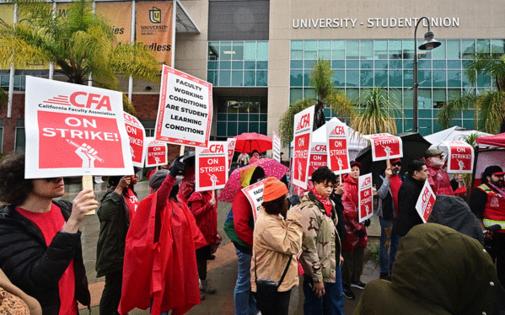Editorial: Why public employee strikes should be illegal
Published in Op Eds
What just happened in Washington state is a vivid example of why opposing public employee strikes was once a bipartisan priority.
School was supposed to begin late last month in Vancouver, Washington. But support staff workers in Evergreen Public Schools went on strike instead. The details of the dispute were entirely predictable. The union wanted pay increases of up to 15 percent over three years. The district offered pay hikes of up to 12.5 percent. The district said it’s staring down a $26 million funding gap over the next three years.
For perspective, this would be like the Clark County School District facing a budget shortfall of around $338 million. Evergreen Public Schools has around 22,000 students. The Clark County School District’s enrollment is about 13 times larger.
This math didn’t mollify the local union, which is connected to the SEIU. They went on strike, which shut down the school system. Students missed out on learning. Parents had to scramble to find child care.
Now, public employee strikes in Washington state are illegal. But the law “establishes no specific penalties for unlawful public employee strikes,” a 2006 attorney general’s opinion found. As a result, the state has seen dozens of school employee strikes.
After the district and union reached an agreement, schools reopened Friday. The strike resulted in students missing 12 days of school. That’s not good for students, even if the district is able to come up with a plan to help students make up for missed instruction.
This situation is similar to what happened in Nevada two years ago — with one big difference. The Clark County Education Association demanded massive pay hikes from the district. Upset over the pace of negotiations, the union began flirting with a strike. Eventually, rolling sickouts closed individual schools. But at the time, those actions were illegal in Nevada and carried significant penalties. The district went to court and won an injunction. Unsurprisingly, teachers then “regained” their health. An agreement was eventually reached, and teachers received hefty salary increases.
The superiority of Nevada’s approach should be obvious. Unfortunately, Gov. Joe Lombardo signed Senate Bill 161 last session. It gutted the legal tools the district used to end those rolling sickouts. It removed a requirement that teacher unions pledge not to strike. It also established a new protection for teachers who refuse to work outside their contracted hours if their collective bargaining agreement has expired.
In other words, the education employee work stoppages that have plagued Washington state could soon be coming to Nevada.
©2025 Las Vegas Review-Journal. Visit reviewjournal.com.. Distributed by Tribune Content Agency, LLC.
























































Comments